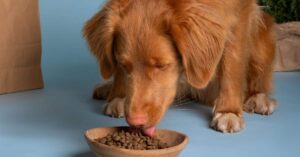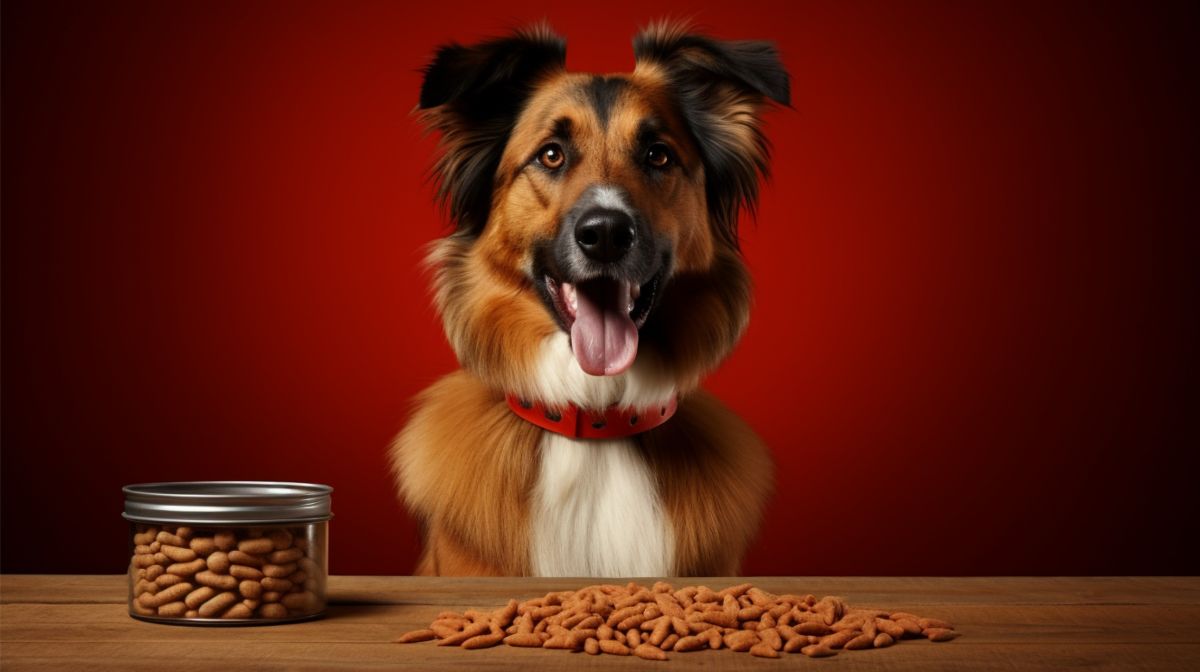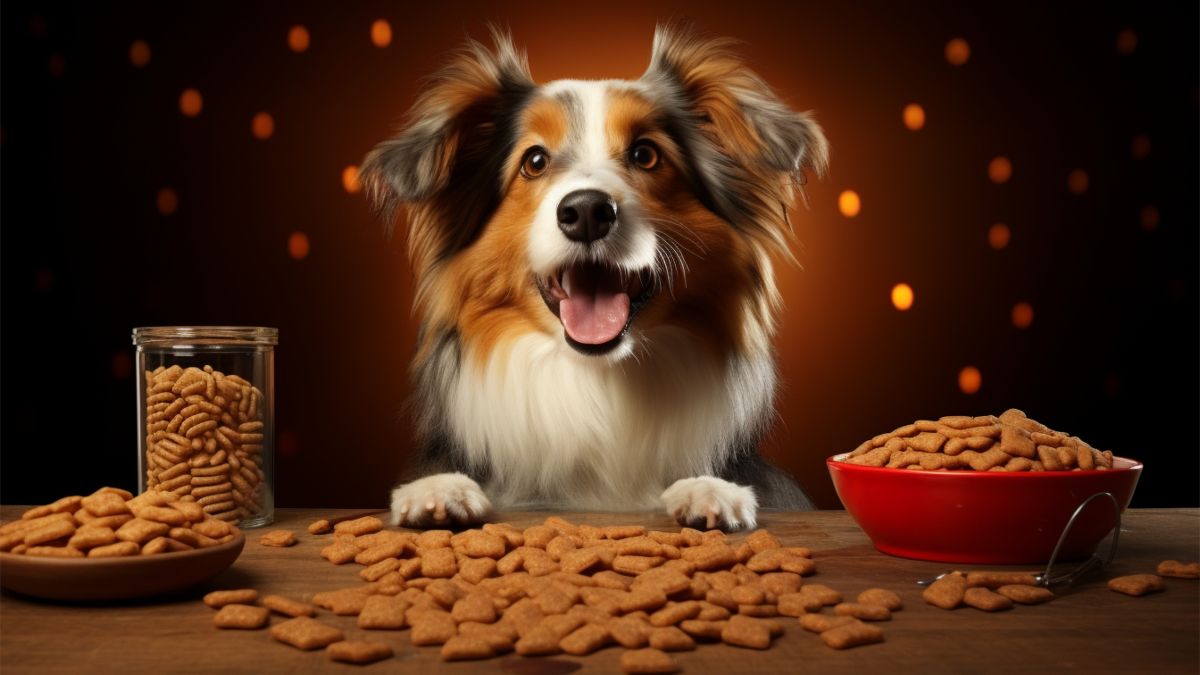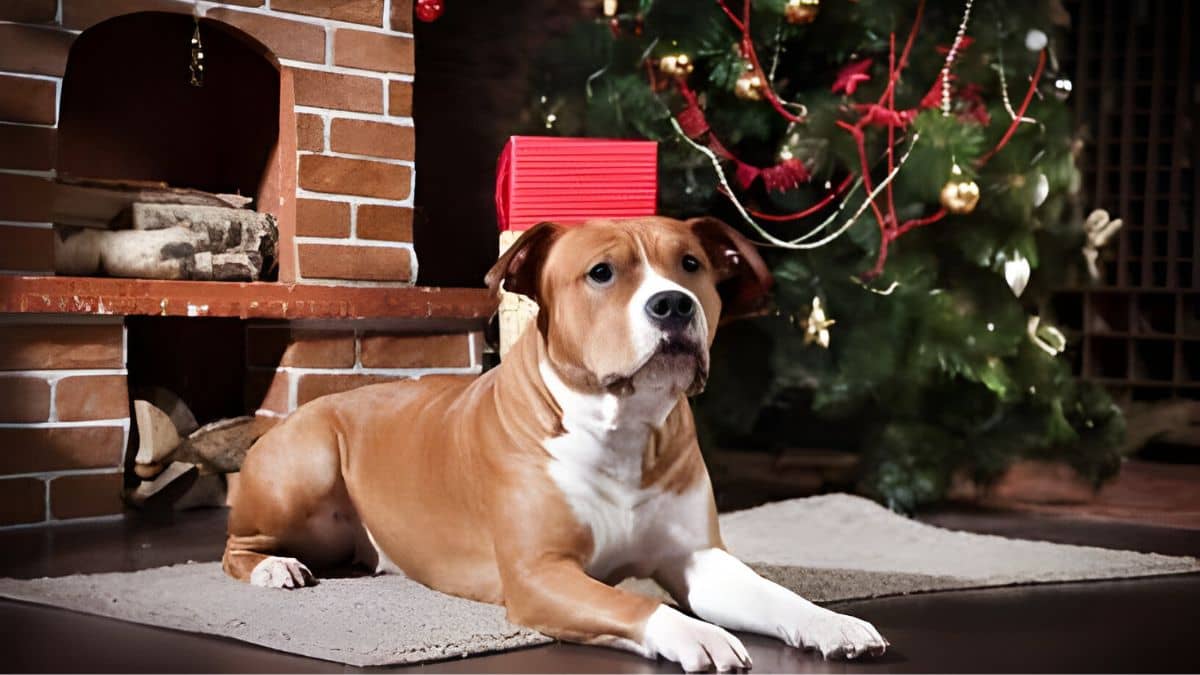Why is my dog hiding food and not eating? Do you know about the exact causes of this?
Basically, this scenario is common for pet owner. There are some reasons of hiding food instead of eating. Instinct is the historical causes in which a dog wild dog and their ancestors would bury food to store it for later consumption. Stress or anxiety is another cause of it.
This stress is triggered by changes in the household, such as a new pet, moving, or alterations in the family dynamic. Illness and playful behavior with food is also responsible for hiding food instead of eating.

Understanding Normal Canine Behavior
It is most essential to know the normal canine behavior of a dog if you want to ensure a healthy wellbeing of your dog.
Social Interaction: As dog are social animals, it interacts with humans and other animals and engage in playing, walking, and bonding activities.
Communication: Generally, dogs communicate through body language, vocalizations, and facial expressions. You should monitor their signals that help to understand their needs and emotions.
Exploration and Play: Additionally, dogs like to explore their environment during playtime. Basically, this playing and exploration are crucial for developing physical and mental stimulation.
Chewing and Digging: By chewing and digging, dogs tries to relieve stress, keep their teeth clean, and express natural instincts.
Hiding Food: Furthermore, dog normally hide food due to instinctual, stress-related, or due to medical issues.
Common Reasons Why Dogs Hide Food
Here, I write some common causes of hiding food instead. Those possible reason are briefly described in this part.
- Instinctual Reasons
- Survival Instincts: In ancient time, wild ancestors of dogs would bury food to save and keep food for the times of scarcity. And this instinct ion is available in domestic’s dogs at present’s time.
- Pack Behavior: If you have only one dog in the household, it might hide food to prevent from others. This behavior is also observed in any dog’s gang.
- Environmental Factors
- Eating Environment: Dogs hide food to eat if they feel insecure or threatened in their surrounding area. So, it is most important to ensure an secure area for your dog’s eating.
- Changes at Home: New pets, new family members, or changes in routine can largely influence on dogs mind and create anxiety that lead dogs to hide their food.
- Loud Noises: Sudden loud noises and chaotic environments can make dogs feel uneasy and tensed that encourage them to hide food.
Health Issues
- Dental Problems: Dental problem is a cause of painful eating. This later lead to dogs to hide food to eat.
- Gastrointestinal Problems: Because of Nausea or Upset Stomach, dog feel unwell and don’t like eating immediately.
Behavioral Reasons
- Taste and Texture: Lack of appealing taste and texture of food is another causes of hiding food in for a dog.
- Overfeeding: Additionally, if you serve more food than your dog need, dog might hide the surplus for next meal.
- Resource Guarding: Dog who is used to compete for food in the past may hide their food to guard it from perceived threats and competitor.
- Play or Boredom: Some dogs like to play by hiding food and entertain themselves if it feel bored.
Potential Medical Issues
Hiding food is also the indicator of medical issues. Basically, dog hides food and exhibits changes in eating habits because of underlying medical issues.
- Dental Problems: Bad breaths, discolored teeth, difficulty chewing, or dropping food from the mouth are the signs of tooth decay. Dog feel pain due to this decaying tooth that make it’s eating uncomfortable.
- Gum Disease: If you observe Red, swollen, or bleeding gums, reluctance to eat hard food, and pawing at the mouth, you would be sure that your dog suffers from gum disease. This disease is responsible for significant pain and uncomfortable eating.
Gastrointestinal Issues
1. Nausea or Vomiting: Drooling, licking lips, eating grass, vomiting, and decreased appetite causes nausea or vomiting problem that decrease the interest on eating food immediately.
2. Digestive Disorders: Furthermore, dog feel discomfort because of Diarrhea, constipation, bloating, and abdominal pain.
Metabolic and Endocrine Disorders
- Diabetes: Diabetics is another causes of disinterest on food. If you notice increased thirst and urination, weight loss, lethargy, and changes in appetite, you will be sure that your dog suffering from diabetes.
- Hypothyroidism: Weight gain, lethargy, hair loss, and changes in appetite can lead to decreased interest in food or erratic eating behavior.
Pain or Discomfort
- Arthritis or Joint Pain: Limping, reluctance to move, stiffness, and changes in behavior is the symptoms of arthritis. This pain can reduce a dog’s willingness to eat and encourage hiding food for later consumption.
- Injuries: Apart from this, injuries is another physical discomfort that can affect eating habits of your dog. Visible wounds, swelling, limping, and behavioral changes are the indicator of injuries.
Psychological and Behavioral Issues
- Stress and Anxiety: If your dog suffers from Panting, pacing, hiding, excessive licking, and changes in eating patterns, it must leave eating and hide food.
- Depression: Like human being, dog eating is increased or decreased depending on depression. Lethargy, loss of interest in activities, changes in sleep patterns, and reduced appetite are the common signs of depression.
Tips for Managing and Correcting the Behavior
For Managing and correcting the behavior of a dog hiding food, you should firstly address potential underlying issues, modifying the environment, and reinforcing positive behaviors. In this section, I include some tips:
Create a Safe Eating Space: Ensuring quiet and disturbances free eating environment is the first priority for dog. So, you select a noise free area for dog feeding. As well as, you feed your dog in the same place and at the same times each day that create a sense of routine and security.
Separate Feeding: For reducing competition and stress, you can feed dog separately if you have multiple dogs.
Quality and Preference: High-quality and nutritious food is also crucial to your dog. Sometimes, new brand is not well adjusted for a dog. So, they start playing or hiding food.
Portion Control: Additionally, overfeeding is not helpful for dog health. You always should serve portion sizes based on your dog’s age, weight, and activity level.
Scheduled Feeding Times: You must fix a time for feeding your dog as well as provide a quiet, calm environment.
Training Commands: Besides, you work on training commands like “leave it” and “drop it” . This help to reduce resource guarding tendencies.
Monitor Eating: In addition to, you keep alert watch on dogs eating habits, behavior changes, and any potential stressors.
Reduce Boredom: By arranging interactive toys, you try to ensure a relax and playful eating time by reducing boredom on food.
Frequently Asked Questions (FAQs)
1. What does it mean when my dog hides his food?
Hiding food instead of eating is a natural instinct from their wild ancestors to save food for later eating. There are several causes of this such as anxiety, stress, overfeeding, or resource guarding behaviors in multi-pet households.
2. Why is my dog suddenly not eating her food?
Due to loss of appetite, medical issues, stress, environmental changes, changes in food and boredom, dogs suddenly leave eating food. If you notice this, you should immediately contact with an veterinarian.
3. Why is my dog hiding food around the house?
Instinctual behavior, anxiety, stress, overfeeding, or boredom are the common causes of hiding food around the house. You should ensure a stable environment and proper stimulation to manage this behavior.
4. Bad dog food ingredients?
Artificial preservatives (BHA, BHT, ethoxyquin), artificial colors and flavors, fillers (corn, wheat, soy), meat by-products, excessive salt and sugar, and chemical additives are generally known as a bad dog food ingredient.
5. Can environmental factors play a role in food hiding?
Environmental factors are largely influential factors to hide food. Changes in surroundings, the presence of other animals, noise, and activity levels are the trigger of food hiding for a dog.
Conclusion
Why is my dog hiding food and not eating? Dogs may hide their food owing to its instinctual behavior inherited from their wild ancestors. Basically, they try to bury food to save it for later consumption and protect it from other animals.
Anxiety or stress can be other causes of this behavior because of insecurity of keeping food. Additionally, medical issues, such as dental problems or gastrointestinal discomfort are also largely responsible for hiding food instead of eating.
Changes in surrounding environment, such as a new pet or household dynamic, can contribute to this behavior sufficiently. If you observe this types of behavior in your dog, you must communicate with an experienced veterinarian to get effective solution.




